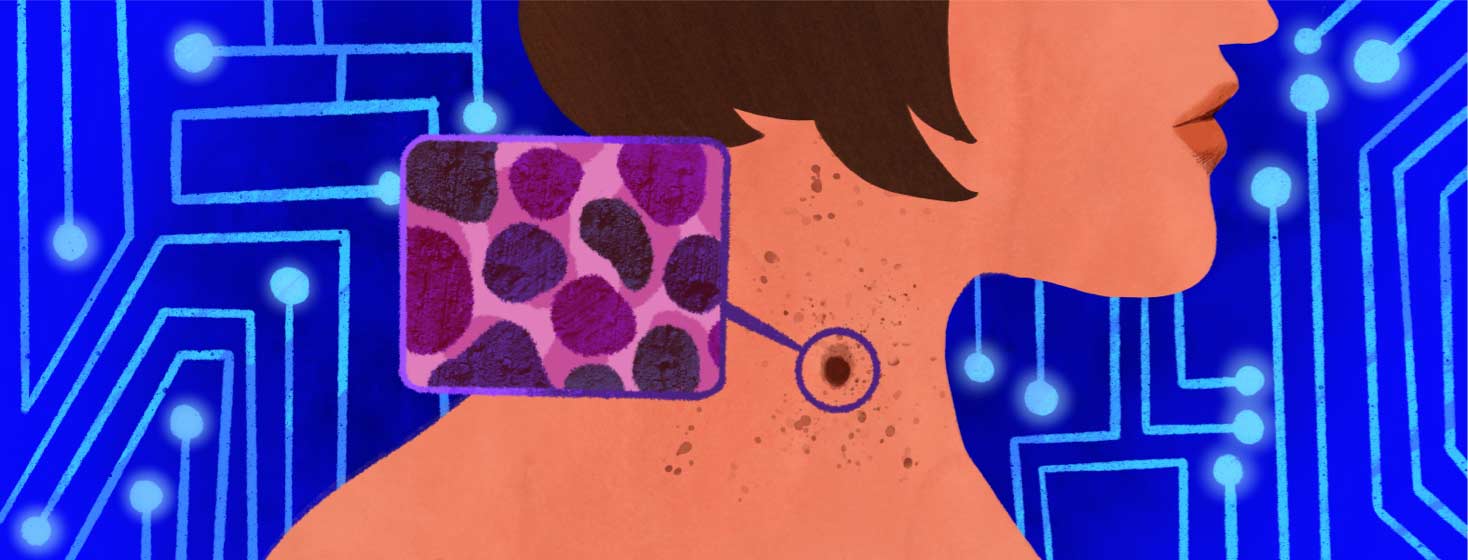Artificial Intelligence and Melanoma Metastases
Artificial Intelligence (AI) is now found everywhere. Whether it be facial recognition technology, global positioning, or nearly everything on our smartphones, AI is part of our daily lives. In short, AI is a computer technology that has been designed to make decisions based on the data that it receives. It may seem like a new thing, but it has been part of our culture for a long time. The robots of movies and television for decades have become our reality today.
How AI is used in diagnosing skin cancer
Artificial Intelligence is being used in the medical field especially when it comes to the diagnosis and prevention of different types of diseases and this includes skin cancer. More precisely it is also being used predictively to gain an understanding of melanoma and whether it will likely metastasize to other parts of the body in skin cancer patients. Can AI technology actually be used to get a better understanding of how certain cancers will behave? A recent study indicates that it may.1
Picking up on things we might have missed
According to the study from the University of Texas (UT), Southwestern Medical Center in Dallas, researchers found that the application of artificial intelligence can help identify cellular properties that are predictive of cell functions that cannot be as easily identified through traditional imaging techniques. In other words, the computer eye can pick up things that the human eye might miss. The study supports the notion that this “deep learning” technology is able to identify melanoma cells that are highly metastatic.
We might be able to determine in melanoma will metastasize
Dr. Gaudenz Danuser, a leading researcher on the study stated that the team’s findings have identified a general framework that can identify mechanisms within cells that push them to metastasize.2 Through the use of artificial intelligence, tissue samples cannot only be used to detect melanoma cells but also decipher how likely they are to spread to other organs and spread the disease. But, what does all this mean for us?
This sounds amazing, but I do have some questions
Like most research, I am curious to see how this pans out. It is certainly interesting that the technology used for facial recognition in opening my smartphone may be used for recognize horrible cancer spreading cells. I will track these findings and be looking to answer these questions.
- Have these findings been supported by other research?
- Will these findings lead to practical methods that are available the general public who need them most?
- Will these methods be accepted by the medical field?
- Will these methods be affordable for patients and accepted by insurance companies?
- Ultimately, will this save lives?
I'm interested in this topic
I have written other articles on the use of AI and skin cancer detection. These findings were more focused on the use of smartphones to identify different types of skin cancer in diagnoses. They had inherited limitations based on the fact that people use different types of phones with different lenses, lighting, with different photographic skill levels. What makes the UT study different is the apparent consistency in lab conditions, which can presumably be replicated producing consistent results and better diagnoses.
At the end of the day, I am for anything that saves lives and relieves suffering.
What do you think about the use of artificial intelligence in this way?

Join the conversation